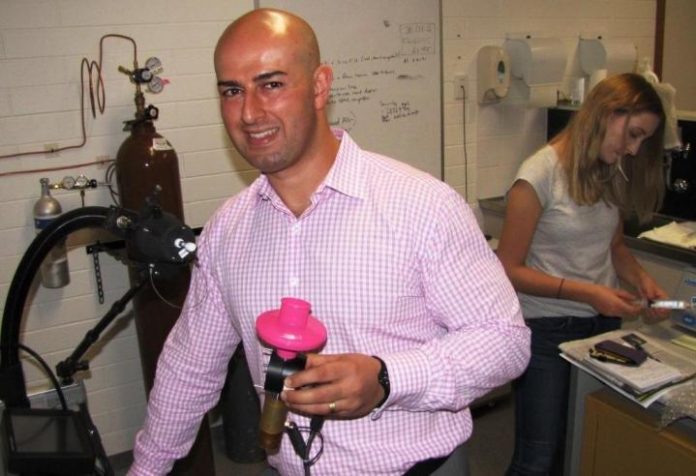A research team led by Flinders University developed a rapid, real-time, and less-invasive test to effectively diagnose celiac disease.
Celiac disease, or gluten-sensitive enteropathy, is a chronic autoimmune disorder that primarily affects the small intestine. It is a different disease than a food allergy. In celiac disease, the immune system of a celiac reacts negatively to the presence of gluten in the diet, causing inflammation and damage to the small intestine. It reduces an individual’s ability to absorb nutrients such as vitamins and minerals, which are necessary for good health.
Diagnosing celiac disease is difficult
Celiac disease is rare in Canada. It affects about 1% of the population. Infants and children often display symptoms of diarrhea, vomiting, and abnormal stretching of the abdomen. However, this childhood disease is difficult to recognize since symptoms are often nonspecific and vary greatly from one person to another both in extent and seriousness.
The diagnosis of celiac disease often relies on small intestine biopsy method. This invasive, painful, and expensive procedure may be too stressful, particularly to children. Thus, a less invasive and cheaper test to detect gastrointestinal illnesses would be beneficial.
A simple breath test to diagnose celiac disease
To reduce the anxiety that is associated with gastrointestinal illness detections, a research team led by Flinders University in Adelaide, Australia, developed a new method of simply blowing into a glass tube to provide effective diagnoses of celiac disease. The researchers recently published their results in Scientific Reports by Nature.
By measuring the amount of the dipeptidyl peptidase-4 (DPP4) enzyme found in the breath, a specific protein produced in the small intestine associated with coeliac disease and gut damage, the new non-invasive breath tester is capable of providing a rapid, real-time, and effective diagnosis of coeliac disease. The researchers tested the concept in lab tests performed on extracted gas samples.
This breakthrough innovation provides a new way to diagnose gastrointestinal illnesses. The research team is about to commence trials for the test at the Women’s and Children’s Hospital in Adelaide to determine the accuracy and safety of the method.
Written by Man-tik Choy, Ph.D.
References:
- Yazbeck, R. et al. Development of a 13C Stable Isotope Assay for Dipeptidyl Peptidase-4 Enzyme Activity A New Breath Test for Dipeptidyl Peptidase Activity. Scientific Reports, 2019;9:4906. DOI: https://doi.org/10.1038/s41598-019-41375-y
- Photo credit: Flinders University



